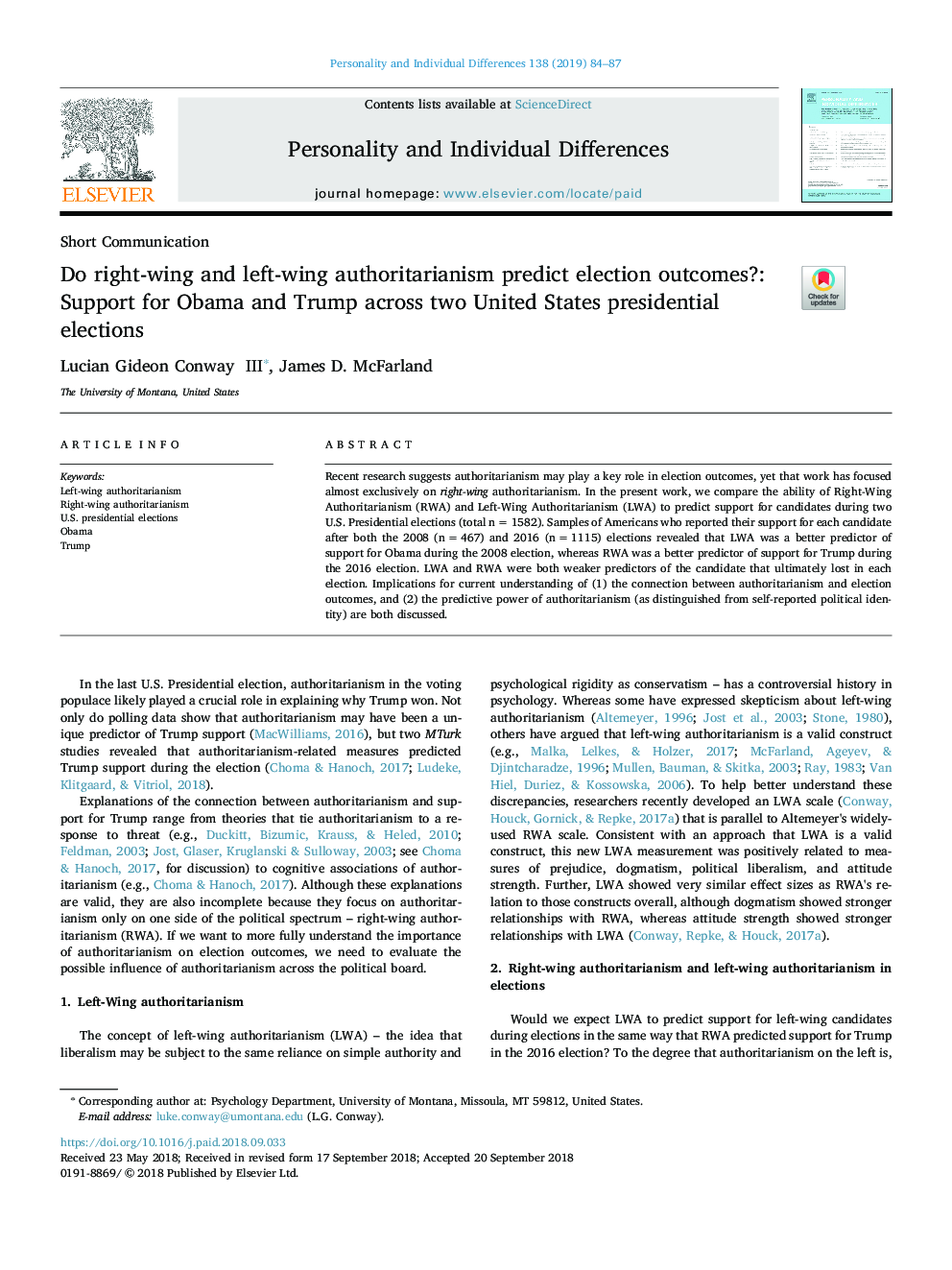| Article ID | Journal | Published Year | Pages | File Type |
|---|---|---|---|---|
| 11028811 | Personality and Individual Differences | 2019 | 4 Pages |
Abstract
Recent research suggests authoritarianism may play a key role in election outcomes, yet that work has focused almost exclusively on right-wing authoritarianism. In the present work, we compare the ability of Right-Wing Authoritarianism (RWA) and Left-Wing Authoritarianism (LWA) to predict support for candidates during two U.S. Presidential elections (total nâ¯=â¯1582). Samples of Americans who reported their support for each candidate after both the 2008 (nâ¯=â¯467) and 2016 (nâ¯=â¯1115) elections revealed that LWA was a better predictor of support for Obama during the 2008 election, whereas RWA was a better predictor of support for Trump during the 2016 election. LWA and RWA were both weaker predictors of the candidate that ultimately lost in each election. Implications for current understanding of (1) the connection between authoritarianism and election outcomes, and (2) the predictive power of authoritarianism (as distinguished from self-reported political identity) are both discussed.
Related Topics
Life Sciences
Neuroscience
Behavioral Neuroscience
Authors
Lucian Gideon III, James D. McFarland,
